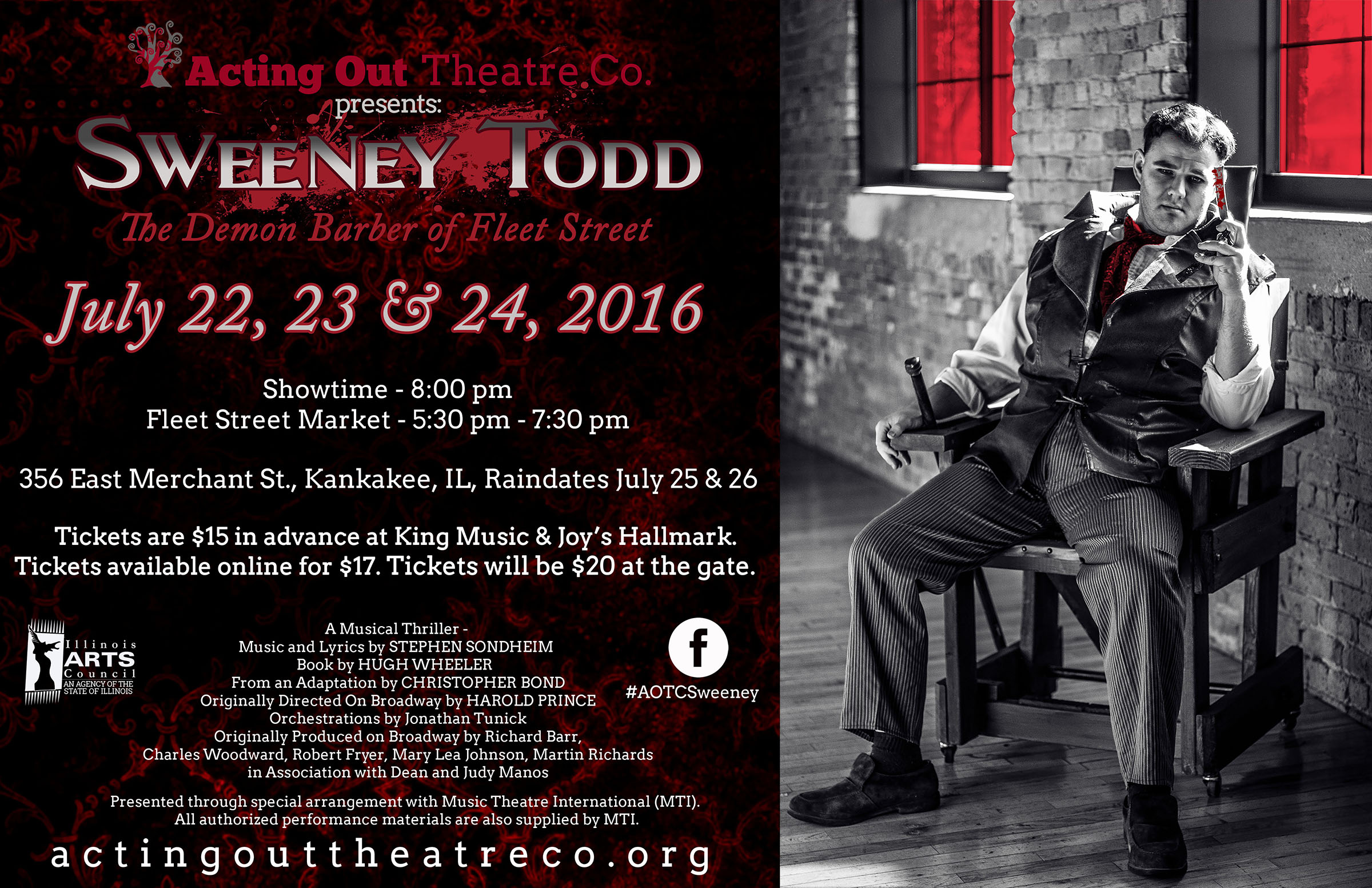
By Seth K. Lowery
Performing can be a great escape. A lot of performers, for better or worse, find comfort and enjoyment in presenting a well-crafted facade to an audience. Being able to take the mannerisms, preferences, choices, appearance, and other traits of a character is very alluring. After all, every child plays pretend, but sometimes I wonder if people are “playing pretend” as adults.
I am Tobias Ragg in AOTC’s production of Sweeney Todd, and it is an immense honor to get to play this role. I have been in shows before, but Sweeney is vastly different from the previous material I have worked with. Many would agree that the complex music and lyrics are among the most challenging in the musical theatre repertory, but I would say that the hardest part of preparing this show is coming to terms with the dark and gripping themes.
Some of the most chilling lyrics in the entire show draw a comparison between Sweeney and all of us. “No one can help; nothing can hide you. Isn’t that Sweeney there beside you?” This line, while poignant, is one of the most important, because it speaks directly to the audience to drive home its point. Without this line, someone could walk away after seeing this production and say, “Wow. I’m glad I’m not like those people,” or something of the like. It would be nice to get to ignore our own darkness, but that is not what Sondheim had in mind.
The fact of the matter is that the whole show is crafted in such a way as to show how our clearly drawn “lines” can easily become blurred, whether by circumstance, corruption, vengeance, lust, or whichever vice you prefer. Sweeney commits acts that most would instantaneously mark as deplorable, but how many of us could maintain that black-and-white approach when we consider the depth to which Judge Turpin wronged Sweeney and his loved ones?
As you are watching the show, you will find yourself regrettably siding with Sweeney, getting just a glimpse of what he feels. His experiences cause him to rationalize his behavior and to choose vengeance. At the end of the show, the cast sings to the audience of how we are all Sweeney. We have all served a “dark and a hungry god” which has the power to corrupt.
I personally believe that every story has a moral. There is always something to be learned, but in a show such as Sweeney Todd, the moral does not look like a typical happy ending. You can’t put the show in a nice, clean package with a moving and pretty ballad of hope in which all the dead characters sing about heaven. This moral shakes us, because it forces us to acknowledge parts of ourselves we would rather ignore.
In a way, we are all Sweeney Todd. We may not be depraved murderers; we may not have a tortured existence. However, we all have the capacity to be led into darkness. We all have the capacity to be selfish. We all try to rationalize our actions.
When an actor is merely “playing pretend,” it is pretty obvious. Likewise, it is obvious that our society is quite adept at blaming others and pretending we have no fault. If you read or watch the news, you find out very quickly that our world is in darkness. People can pass the buck or ignore the issue for a long period of time, but this will not solve any problems.
The profound message of this show speaks into the problems we are facing right now as a society. All of us must acknowledge our “inner Sweeney.” The only way to fight darkness is to bring it to light.
To seek revenge may lead to hell, but everyone does it, if seldom as well . . .”


